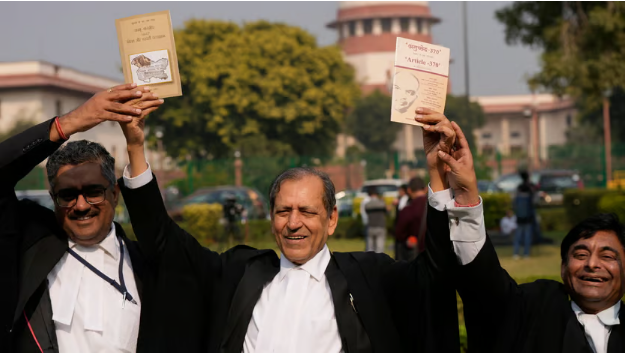A fresh report published by The Economist titled “Examining the Independence of India’s Supreme Court” has sparked a debate on the independence of the Indian judiciary, especially in view of its recent approval of the revocation of occupied Jammu and Kashmir’s special status and the acquittal of Prime Minister Narendra Modi in the 2002 anti-Muslim riots in Gujarat.
According to Kashmir Media Service, the report has ignited a debate among legal scholars, government officials and the general public.
The Economist’s analysis highlights several key points of contention regarding the independence of the Indian Supreme Court. One central concern raised in the report is the court’s reluctance to challenge the policies and decisions of the ruling Bharatiya Janata Party (BJP) government, particularly on issues deemed crucial by various segments of society.
The publication draws attention to specific cases where the Supreme Court’s rulings have been scrutinized for favoring the government’s agenda. Notable examples include the approval of the revocation of Jammu and Kashmir’s special status and the acquittal of Prime Minister Modi in the highly contentious 2002 Gujarat riots case.
In providing context to its analysis, The Economist acknowledges the historical challenges faced by the Indian judiciary, particularly during periods of political upheaval such as Indira Gandhi’s Emergency rule. Despite the court’s efforts to reclaim its authority, the report suggests that structural flaws and political pressures continue to undermine its perceived independence.
The Economist further illustrates its argument by citing instances of what it terms as “judicial avoidance.” This refers to delays in hearing critical cases, such as those related to the Citizenship Amendment Act, and the withdrawal of legal pleas, such as that of activist Umar Khalid, which have raised questions about the court’s willingness to confront contentious issues head-on.
The Economist’s report calls for open dialogue and comprehensive analysis from various perspectives to better understand the complexities surrounding the court’s independence and its implications for the country’s democratic institutions.—KMS










